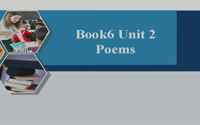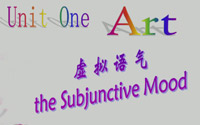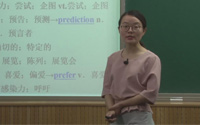课程内容
《动词语态》
考点一:被动语态注意情况
1.主动变化被动时双宾语的变化。
My friend gave me an interesting book on my birthday.
An interesting book was given to me(by my friend) on my birthday.
I was given an interesting book(by my friend) on my birthday.
2.主动变被动时,宾补成主补(位置不变);(作补语的)不定式前需加to。
The boss made him work all day long.
He was made to work all day long(by the boss).
3.短语动词变被动语态时,勿要掉“尾巴”。
The children were taken good care of(by her).
Your pronunciation and spelling should be paid attention to.
4.情态动词和be going to,be to,be sure to,used to,have to,had better等结构变被动语态,只需要将它们后面的动词原形变为be+过去分词。
5.当句子谓语为say,believe,expect,think,know,write,consider,report等时,被动语态有两种形式:
People say he is a smart boy.
=It is said that he is a smart boy.
=He is said to be a smart boy.
People know paper was made in China first.
=It is known that paper was made in China first.
=Paper was known to be made in China first.
类似巨型有:It is said/known/suggested/believed/hoped/thought that…
考点二:不能用被动语态的几种情况。
1.所有的不及物动词或不及物动词词组不能用于被动语态之中。
2.表示状态的谓语动词,如:last,hold,benefit,,contain,equal,fit,join,mean,cost,look like,consist to等。
3.表示归属的动词,如have,own,belong to等。
4.表示“希望、意图”的动词:wish,want,hope,like,love,hate等。
5.宾语是反身代词或相互代词时谓语动词用主动语态。
6.宾语是同源宾语,不定式、动名词等谓语动词。
7.有些动词以其主动形式表示被动意义,特别是当主语是物时,常见的动词有sell,write,wash,open,lock等(此句中常会有一些表示性质或动作特征的副词:well,badly,easily,hard,difficultly等)。
考点三:主动形式表被动意义。
1.当feel,look,smell,taste,sound等后面接形容词时;当cut,read,sell,wear,write等词带状语修饰语时;当动词表示“开始、结束、关、停、转、启动”等意义时。
This kind of cloth washes easily.这种布易洗。
These novels won't sell well.这些小说不畅销。
My pen writes smoothly.我的钢笔写起来很流畅。
The door won't lock,门锁不上。
The fish smells good.鱼闻起来香。
2.当break out,take place,shut off,turn off,work out等动词表示“发生、关闭、制定”等意思时。
The plan worked out successfully.
The lamps on the wall turn off.
3.want,require,need,demand,request后面的动名词用主动表示被动含义。
4.be worth doing用主动形式表示被动含义。
5.在“be+形容词+to do”中,不定式的逻辑宾语是句子的主语,用主动代被动。
This kind of water isn't fit to drink.
The girl isn't easy to get along with.
另外:be to blame(受谴责),be to rent(出租)也用主动形式表被动。
考点四:被动形式表示主动意义的几种情况。
1.be seated坐着
He is seated on a bench.
(He seats himself on a bench.)
2.be hidden躲藏
He was hidden behind the door.
(He hid himself behind the door.)他藏在后门。
3.be lost迷路
4.be drunk喝醉
5.be dressed(in sth)穿着…
The girl was dressed in a red short skirt.




























